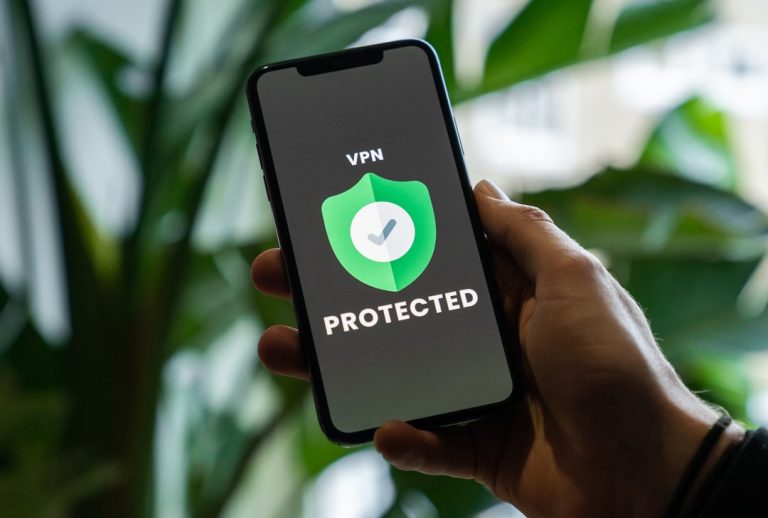
In an increasingly digital world, online communication has become a cornerstone of both personal and professional interactions. The rise of instant messaging platforms, social media, and customer service chatbots has transformed the way we connect with others. However, with this convenience comes the necessity for a set of guidelines known as online chat etiquette.
This etiquette encompasses the norms and expectations that govern how individuals should conduct themselves in virtual conversations. Understanding these principles is essential for fostering respectful and effective communication, whether in casual chats with friends or formal discussions in a business context. Online chat etiquette is not merely about adhering to a set of rules; it reflects the values of respect, clarity, and empathy in communication.
The absence of non-verbal cues in text-based interactions can lead to misunderstandings, making it crucial to convey messages thoughtfully. As we navigate through various chat platforms, from social media to professional messaging apps, being aware of how our words may be interpreted by others can significantly enhance the quality of our interactions. This article delves into the dos and don’ts of online chat etiquette, the importance of tone and language, and practical tips for effective communication.
Key Takeaways
- Online chat etiquette is important for effective communication and building relationships in the digital world.
- Do use proper grammar, punctuation, and spelling to convey your message clearly and professionally.
- Don’t use all caps, excessive emojis, or text speak as it can be perceived as unprofessional and difficult to read.
- Understanding the importance of tone and language is crucial in online chat to avoid misunderstandings and conflicts.
- Tips for effective communication in online chat include active listening, being concise, and using appropriate language for the context.
The Dos of Online Chat Etiquette
When engaging in online chats, there are several best practices that can help ensure a positive experience for all parties involved. One of the foremost dos is to be clear and concise in your messages. Clarity is vital in any form of communication, but it becomes even more critical in text-based formats where misinterpretation can easily occur.
For instance, instead of sending a vague message like “Can you do that?” it is more effective to specify what you are referring to, such as “Can you send me the report by 3 PM?” This level of specificity not only reduces confusion but also demonstrates respect for the recipient’s time and attention. Another important aspect of online chat etiquette is to respond in a timely manner. While it is understood that everyone has different schedules and commitments, making an effort to reply promptly shows that you value the other person’s input.
A delayed response can lead to frustration or the impression that you are uninterested in the conversation. If you cannot respond immediately, a simple acknowledgment such as “I’ll get back to you shortly” can go a long way in maintaining a positive rapport. Additionally, using appropriate greetings and farewells can set a friendly tone for the conversation, making it more engaging and pleasant for both parties.
The Don’ts of Online Chat Etiquette

While there are many practices to embrace in online chat etiquette, there are equally important behaviors to avoid. One significant don’t is using all capital letters, which is often interpreted as shouting. This can create an aggressive tone that may alienate or offend the recipient.
Instead, opt for standard capitalization to convey your message without unnecessary intensity. Similarly, excessive use of emojis or slang can detract from the professionalism of your communication, particularly in work-related chats.
Another critical don’t is neglecting to proofread your messages before sending them. Typos and grammatical errors can undermine your credibility and make your communication appear careless. For example, sending a message with multiple spelling mistakes can lead the recipient to question your attention to detail or professionalism.
Taking a moment to review your message not only enhances clarity but also reflects your commitment to effective communication. Additionally, avoid discussing sensitive topics or engaging in controversial debates unless you are certain that the other party is comfortable with such discussions. This helps maintain a respectful atmosphere and prevents potential conflicts.
Understanding the Importance of Tone and Language
| Metrics | Importance |
|---|---|
| Effective Communication | Helps convey the intended message clearly |
| Building Relationships | Impacts how others perceive and respond to us |
| Conflict Resolution | Can de-escalate or escalate a situation |
| Professionalism | Affects how we are perceived in a professional setting |
The tone of your messages plays a pivotal role in how they are received by others. Unlike face-to-face interactions where body language and vocal inflections provide context, online chats rely solely on written words to convey meaning. This lack of non-verbal cues can lead to misinterpretations if the tone is not carefully considered.
For instance, a straightforward statement like “I need this done” may come across as demanding or curt without the right tone. By incorporating polite language and softening phrases—such as “Could you please help me with this?”—you can create a more collaborative atmosphere. Language choice is equally important in online chats.
The words you select can significantly influence how your message is perceived. Using inclusive language fosters a sense of belonging and respect among participants. For example, instead of saying “you guys,” which may exclude certain individuals, opting for “everyone” or “team” is more inclusive.
Additionally, being mindful of cultural differences in language use can enhance understanding and prevent unintentional offense. In global conversations, avoiding idiomatic expressions or colloquialisms that may not translate well can help ensure that your message resonates with a diverse audience.
Tips for Effective Communication in Online Chat
To enhance your online chat experience, several practical tips can be employed to facilitate effective communication. First and foremost, active listening is crucial even in text-based formats. This means taking the time to read and understand what the other person is saying before formulating your response.
Acknowledging their points or asking clarifying questions demonstrates that you are engaged in the conversation and value their input. For instance, responding with “That’s an interesting perspective; could you elaborate on that?” encourages further dialogue and shows genuine interest. Another effective strategy is to utilize bullet points or numbered lists when conveying complex information.
This approach helps break down information into digestible parts, making it easier for the recipient to follow along. For example, if you are outlining project tasks or deadlines, presenting them in a list format allows for quick reference and reduces the likelihood of miscommunication. Additionally, consider using direct quotes or references when discussing specific topics; this adds credibility to your statements and provides context for your points.
Handling Conflict and Disagreements in Online Chat

Conflict is an inevitable part of any communication process, including online chats. When disagreements arise, it is essential to approach them with a mindset geared toward resolution rather than escalation. One effective method for handling conflict is to remain calm and composed in your responses.
Avoid reacting impulsively or emotionally; instead, take a moment to reflect on the situation before replying. For instance, if someone challenges your viewpoint, responding with “I see where you’re coming from; however…” allows you to express your perspective without dismissing theirs. Moreover, employing empathy during conflicts can significantly improve outcomes.
Acknowledging the other person’s feelings or concerns demonstrates that you value their perspective, even if you disagree with it. Phrases like “I understand that this is important to you” can help de-escalate tensions and foster a more constructive dialogue. Additionally, seeking common ground can be beneficial; identifying shared goals or interests can shift the focus from disagreement to collaboration.
Building Relationships and Connections in Online Chat
Establishing meaningful relationships through online chat requires intentional effort and engagement. One effective way to build connections is by personalizing your interactions. Taking the time to remember details about the other person—such as their interests or previous conversations—can create a sense of familiarity and warmth.
Did you get a chance to try that new restaurant we talked about?” shows that you care about their experiences beyond just transactional exchanges. Furthermore, expressing appreciation and gratitude can strengthen relationships significantly.
A simple “Thank you for your help” or “I appreciate your insights” goes a long way in fostering goodwill and encouraging open communication. Regularly checking in with colleagues or friends can also reinforce connections; asking how they are doing or if they need assistance creates an environment where individuals feel valued and supported.
Conclusion and Final Thoughts on Mastering Online Chat Etiquette
Mastering online chat etiquette is an ongoing process that requires awareness and practice. By embracing the dos and avoiding the don’ts of communication, individuals can enhance their interactions across various platforms. Understanding the nuances of tone and language further enriches these exchanges, allowing for clearer understanding and connection among participants.
Effective communication strategies—such as active listening, clear structuring of information, and empathetic conflict resolution—are essential tools for navigating online conversations successfully. As we continue to engage in digital dialogues, prioritizing relationship-building through personalization and appreciation will foster stronger connections within our personal and professional networks. Ultimately, mastering online chat etiquette not only improves individual interactions but also contributes to a more respectful and collaborative digital environment for everyone involved.
If you’re interested in learning more about online chat etiquette, you may want to check out the article “Hello World” on the Hereto Chat blog. This article discusses the importance of setting a positive tone in online conversations and offers tips for effective communication in virtual settings. To read more about this topic, visit here.
FAQs
What is online chat etiquette?
Online chat etiquette refers to the set of rules and guidelines that govern polite and respectful behavior when communicating with others in online chat platforms. It includes considerations such as tone, language, response time, and respect for others’ privacy.
Why is online chat etiquette important?
Online chat etiquette is important because it helps to create a positive and respectful online environment. It ensures that all participants feel comfortable and valued, and it helps to prevent misunderstandings and conflicts.
What are some common online chat etiquette guidelines?
Some common online chat etiquette guidelines include using proper grammar and punctuation, avoiding typing in all caps (which can be interpreted as shouting), being mindful of others’ time and not spamming the chat, and respecting others’ opinions and privacy.
How can I maintain good online chat etiquette?
You can maintain good online chat etiquette by being mindful of your tone and language, being respectful of others’ opinions, responding in a timely manner, and being considerate of others’ privacy and personal boundaries.
What are some examples of online chat etiquette violations?
Examples of online chat etiquette violations include using offensive language, being disrespectful towards others, spamming the chat with irrelevant messages, and sharing personal information without consent.



